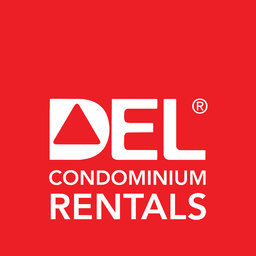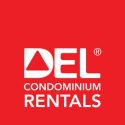16 Apr The New Landlord’s Quick Guide to Tax Time
So this year, you had a great idea: You rented out that investment condo to a great tenant (or two!), built a fabulous working relationship with them, and now that condo on its way to making an income for you while providing someone a comfortable home. Trouble is, it’s tax time. And suddenly your usual T4 and a few charitable donations are just the beginning of the paperwork you’re facing as a landlord. So, how do you deal with your rental condo when it comes to taxes?
Rental income is declarable income
It should go without saying, but Revenue Canada will be very much interested in the income you’re making from rent. Regardless of whether you’re renting an investment property or part of your own personal home—a separate unit in your home or just a room in the condo you live in—that money needs to be formally declared as part of your taxes.
But there are a lot of things you can legally write off
Renting your condo unit means you have rental-related expenses, many of which you can claim against your income at tax time. You can write off rental expenses that occur at any part of the rental process, including:
- Fees you’ve paid to advertise your condo unit to prospective tenants, including listings with real estate agents, rental agencies, property listing sites, cleaners, and staging companies;
- Fees paid to any management company you’ve hired to take care of the property;
- Maintenance and repairs to your property;
- Office supplies you’ve bought for administering your condo, including small stationery like pens;
- Property insurance on your rental condo;
- Property taxes on your rental condo;
- Interest that accrues on your mortgage while you’re renting the property;
- Utilities to the rental condo that are included in your lease with your tenants, including condo fees;
- Your accounting and legal fees;
- Travel costs, if you’re doing your own maintenance.
That’s just the run-of-the-mill stuff—your current expenses. You can also write off a whole category of expenses called Capital Cost Allowances—the big purchases—which include any appliances, equipment, furniture, fixtures that you’ve purchased for your rental property.
What you can’t deduct: The principal on your mortgage, land transfer taxes, or your own maintenance labour.
So I hope you kept your receipts
It’s a fundamental: hold on to your receipts for any expenses that relate to income. Going forward, create a folder for all your rental-related expenses, and hold on to any receipts or proofs of payment that come your way.
Got everything! Now, how do I do all this stuff?
Pick up a Form T776 from your closest available Internet, and fill it out with all this assembled information. The number it spits out at the end of that afternoon should be your net rental income, which goes on Line 126 of your personal tax return and factors into your overall total taxes owed.
This is not making all that much sense to me.
When in doubt, ask the CRA. The great thing about Revenue Canada is that they tend to want you to succeed at your taxes, not fail, so they’re generally quite forthcoming with information and tips—and have a handy guide for everything you need to know about rental income on your personal taxes. The CRA’s guides aren’t short, but they’re detailed, and they’re full of clear examples on how each exemption and regulation works.
No, really. I’m lost.
If you still find yourself out of your depth, or start to handle multiple rental properties, it’s a good idea to outsource to a local accountant. They’re worth their weight in delicious tax credits, know both your obligations and the advantages you can bring to bear on your taxes as a landlord. And overall, it never hurts to have the peace of mind you get from a professional on the case.
Estimate for next year
Now that you’ve got that done, estimate what your expenses might be for next year—and put that against your expected year’s income. If you do this right, and set aside what you’ll need to pay in rental income taxes as the money comes in, paying your taxes next year should be absolutely painless.



Sorry, the comment form is closed at this time.